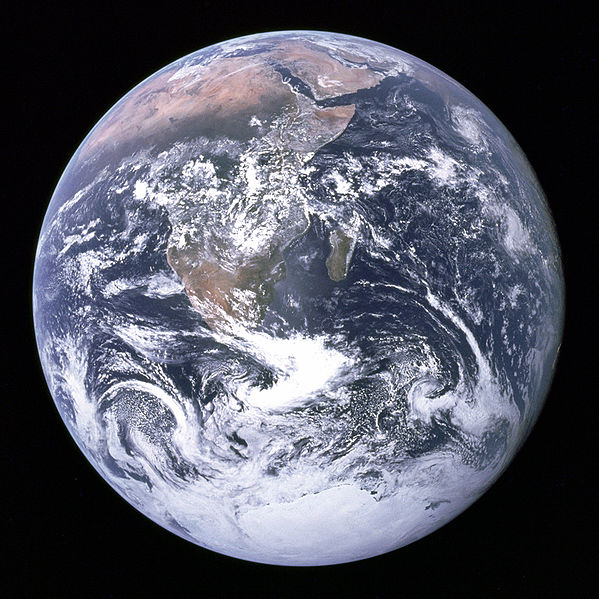
Ancient civilisations have left some pretty amazing things for us to remember them by, from Stonehenge to the great pyramids of Egypt. But what will we be remembered for, thousands of years from now? The internet? The space station? The Large Hadron Collider? Not quite. According to a feature article in the December issue of Nature Reports Climate Change, our longest-lasting legacy is likely to be the carbon dioxide that we're pumping into the atmosphere.
According to Mason Inman, who wrote the article, most popular books and articles on climate change don't say much about the lifetime of carbon dioxide in the atmosphere, perhaps just saying "a century or more". But a group of climate scientists is now trying to spread the word that it will be much, much longer than that. Here's how University of Chicago oceanographer David Archer puts it in his book The Long Thaw:
"The climatic impacts of releasing fossil fuel CO2 to the atmosphere will last longer than Stonehenge. Longer than time capsules, longer than nuclear waste, far longer than the age of human civilisation so far."
He goes on to say that unless we kick our addiction to fossil fuels now, we could force the Earth out of its regular pattern of freezes and thaws - even delaying the next ice age by half a million years.
That's quite a legacy. But does it matter? Of course any change to the climate can have positive as well as negative effects. Unfortunately the predictions for global warming suggest that the planet won't just get gently warmer. As things heat up, it's likely that weather patterns will get more unstable, with more extreme events such as floods, droughts and storms. So while the greenhouse gases we produce will last, all kinds of other things, from glaciers to species to communities, may not. A friend of mine, science journalist Gaia Vince, is about to set off on a journey around the world, to see for herself how global warming is affecting the planet.
She says: "I never saw the dinosaurs, I missed the Mayan civilization - now is a uniquely fascinating time for all sorts of life on Earth and this is a chance to see it. It might be the last chance." She's keeping a blog, called Wandering Gaia, to tell the rest of us about what she finds.